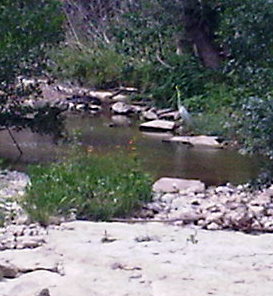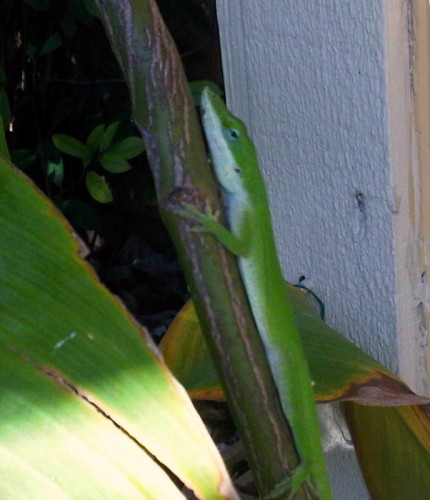I started following what I called “The Affair of the Danish Mo-Toons” way back at the very beginning of that particular imbroglio, followed by the ruckus last year over “Everybody Draw Mohammad” and now we seem to have moved on to the Charlie Hebdo fiasco – a French satirical magazine dared to poke fun at the founder of Islam … by putting a cartoon version on the cover of their latest issue, with the result that their offices were firebombed. I think at this point it would have been fair to assume that representatives of the Religion of Peace would respond in a not-quite-so peaceful manner, so all props for the Charlie Hebdo management for even going ahead with it – for even thinking of standing up for freedom of thought, freedom of a press, even freedom to take the piss out of a target. (The following is what I wrote last year – still relevant to this latest case)
 Sgt. Mom
Sgt. Mom
Stand Off at the Salado – Conclusion
(Salado Creek today – not much water in it, because of the drought. And that is an egret. Part One of this post is here.)
Texas did not have much of a regular professional army, as most western nations understood the concept. Texas did have sort of an army, and sort of a navy, too but mere tokens the window-dressing required of a legitimate nation, which is what Texas was trying it’s best to become, given restricted resources. What Texas did have was nearly limitless numbers of rough and ready volunteers, who were accustomed to respond to a threat, gathering in a local militia body and volunteering for a specific aim or mission, bringing their own weapons, supplies and horses, and usually electing their own officers. They also had the men of various ranging companies, which can be thought of as a mounted and heavily-armed and aggressive Neighborhood Watch. Most towns and settlements of any size on the Texas frontier fielded their own Ranger Companies. By the time of Woll’s raid on San Antonio, those volunteers and Rangers were veterans of every fight going since before Texas had declared independence – a large portion of them being of that tough Scotch-Irish ilk of whom it was said that they were born fighting. That part of the frontier which ran through Texas gave them practice at small-scale war and irregular tactics on a regular and continuing basis.
Ghost Ship
(I came across this post in the old Daily Brief archives, and thought it would make a fantastic post for Halloween … for reasons that should become clear.)
The searchers found it, the ghost ship, when they were looking for something else; it lay, broken but deceptively complete, draped across the crest of a dune, like a seabird on the flat swells of a calm sea. But this metal bird had landed in a desolate and frozen sand sea, an aeronautical Mary Celeste, all of itself, and remained eerily preserved. Baked in the desert sun, wheels-up, pancake-landed and broken in half aft of the wings and entirely empty of its’ crew … but still, their gear, and extra ammunition was perfectly stowed, the guns functional … the radio worked, so did the compass and at least one of the engines. There were still-edible emergency rations, drinkable water, even a thermos of still-potable coffee … everything as it had been left.
Stand Off at the Salado
(When I wrote a couple of weeks ago about Texas history, some of it – like the mass executions of Texian fighters at the Goliad – came as a surprise to some readers. This might be another surprise: a Mexican invasion six years later, which briefly occupied San Antonio…)

